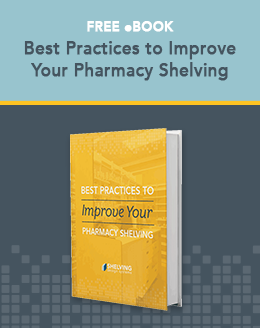 Independent pharmacies face increasing competition from big-box retail pharmacies like those established in department stores, and from retail chain pharmacies like Walgreens and CVS. The perception among the public is that these pharmacies offer cheaper prices without suffering a loss of quality, but in fact, nothing could be further from the truth. It's worth noting that independent pharmacies' prices are actually competitive with retail pharmacies', and offer a host of other benefits besides.
Independent pharmacies face increasing competition from big-box retail pharmacies like those established in department stores, and from retail chain pharmacies like Walgreens and CVS. The perception among the public is that these pharmacies offer cheaper prices without suffering a loss of quality, but in fact, nothing could be further from the truth. It's worth noting that independent pharmacies' prices are actually competitive with retail pharmacies', and offer a host of other benefits besides.
To bolster their ability to compete with retail pharmacy establishments, one of the major trends among independent pharmacies is that they are providing focused customer service that retail pharmacies just can't. In addition, they also provide specialized services to the customers that retail pharmacies don't. Some of these current trends in independent pharmacies include:
Clinical pharmacy
One of the fastest growing trends in pharmacy is the establishment of health clinics within existing independent pharmacies to serve patients with non-urgent healthcare needs. The clinical pharmacy is a preferable alternative to emergency rooms and urgent care centers, which are already overwhelmed with cases in large part because patients with non-urgent healthcare needs go to emergency rooms or urgent care centers and take up unnecessary time and space that should be devoted to patients with truly urgent needs.
The clinical pharmacy addresses this quandary by providing a place for patients to go where they can receive fast, affordable care for non-urgent medical needs, or preventative care.
The clinical pharmacy is staffed not by doctors but by nurse practitioners, who can work in tandem with the independent pharmacist to provide most of the same care a family practitioner, for example, could provide – but without the cost, and delay in service. In addition, the nurse practitioner can provide a level of one-on-one attention (again, in tandem with the independent pharmacist) that physicians cannot.
It should be noted that big-box and chain retail pharmacies do often have their own clinical pharmacies as well, but the attention is not as personalized, since staff rotation is frequent. In addition, the clinical pharmacy within an independent establishment will often work with patients who not have insurance and provide payment plans or even discounts if necessary so that the care is affordable.
Free delivery service
It can be difficult for customers to go out and pick up prescriptions if they're not feeling well, but that's exactly what most retail pharmacies expect them to do. The independent pharmacy, by contrast, provides free delivery service to customers, relieving them of this task.
Personalized attention for customers
Big-box or chain retail pharmacies route incoming customer calls to call centers in another part of the state or even country. When customers call their local independent pharmacist, though, he or she is probably the one answering the phone. In addition, independent pharmacies' personnel get to know their customers directly so that they can provide personalized answers to any questions or health concerns costumers may have.
Personalized attention to prescriptions
Again, with most retail pharmacies, prescriptions are not filled locally. Instead, they are shipped to central locations to be filled and then shipped to stores thereafter. When a customer calls in a prescription to an independent pharmacy, however, that prescription is filled at that location by the pharmacist, ensuring that the customer gets the medication he or she actually needs and is not faced with a potentially damaging or even deadly mix-up.
You may also be interested in these articles:
Keeping Your Pharmacy Organized & Secured
Store Displays for Modern Pharmacy Design



